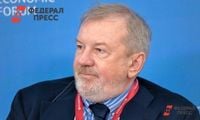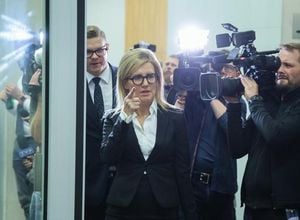On May 10, 2025, Moscow announced its willingness to consider the presence of foreign military contingents in Ukraine, provided that such deployments do not threaten Russia's national security. This statement was made by Andrei Bystritsky, the dean of the Faculty of Creative Industries at the National Research University Higher School of Economics, during a recent discussion on global security.
Bystritsky emphasized the need for new frameworks in global security, stating, "Without new contours of global security, stable solutions cannot be achieved." His comments reflect a growing concern that without a rethinking of international security architecture, conflicts like the one in Ukraine may remain unresolved.
According to Bystritsky, the most favorable outcome for Russia would be the inclusion of peaceful agreements regarding Ukraine into a larger international treaty on European security. He pointed out that in the current geopolitical climate, where some nations openly express their intention to defeat Russia, the presence of foreign troops in Ukraine would be perceived as a risk factor rather than a guarantee of stability or a means of arbitration.
This sentiment echoes broader concerns in Moscow regarding foreign military involvement in Ukraine. Bystritsky's perspective suggests that Russia views such deployments as a potential threat to its sovereignty and security.
Adding to the discourse, German Chancellor Friedrich Merz recently expressed hope for a 30-day ceasefire agreement in Ukraine, aiming to ease the ongoing hostilities. His remarks indicate a potential opening for negotiations, although the complexities of the situation remain daunting.
The interplay of military presence and diplomatic efforts underscores the precarious nature of the conflict in Ukraine. Bystritsky’s analysis highlights the necessity for a comprehensive approach to security that includes all parties involved, as well as the importance of establishing trust and mutual understanding.
As discussions continue, the international community watches closely, aware that the stakes are high. The presence of foreign military forces in Ukraine could escalate tensions, complicating any peace efforts. The path to stability may require not only ceasefires but also a fundamental shift in how nations engage with one another in matters of security.
In summary, Moscow's readiness to contemplate foreign military presence in Ukraine under specific conditions reflects a complex and evolving landscape of international relations. The call for new security frameworks resonates with many who believe that enduring peace can only be achieved through collaborative efforts and comprehensive agreements.




